
Mine Water and the Environment
Scope & Guideline
Transforming mine water research into actionable solutions.
Introduction
Aims and Scopes
- Mine Water Management:
Research centered on innovative methods for managing water produced during mining operations, including treatment technologies and resource utilization. - Environmental Impact Assessments:
Studies assessing the ecological consequences of mining activities, particularly concerning water quality and aquatic ecosystems. - Acid Mine Drainage (AMD) Studies:
Focused investigations into the formation, treatment, and remediation of acid mine drainage, highlighting the chemical processes involved and potential recovery methods. - Hydrogeology and Groundwater Studies:
Exploratory and modeling studies aimed at understanding groundwater behavior in mining areas, including flow dynamics and contamination sources. - Sustainable Mining Practices:
Research promoting sustainable approaches in mining, including post-mining land use, water reuse, and the circular economy. - Risk Assessment and Mitigation Strategies:
Analysis of risks associated with mine water management, including inrush events and tailings dam stability, with recommendations for mitigation.
Trending and Emerging
- Innovative Water Treatment Technologies:
Recent publications highlight cutting-edge approaches such as passive treatment systems, bioremediation, and the use of nanotechnology for mine water treatment. - Climate Change Impact Studies:
Increasingly, research is focusing on the effects of climate change on mine water management, particularly in relation to water scarcity and changing hydrological patterns. - Resource Recovery from Mine Water:
There is a growing interest in recovering valuable resources (e.g., metals, nutrients) from mine-impacted water, aligning with circular economy principles. - Integrated Water Management Models:
Emerging studies emphasize the development of holistic models that integrate various aspects of water management, including socio-economic factors, to improve decision-making. - Remote Sensing and Monitoring Technologies:
The use of advanced remote sensing techniques for monitoring water quality and quantity in mining areas is on the rise, reflecting technological advancements in the field.
Declining or Waning
- Traditional Water Treatment Methods:
There has been a noticeable decrease in publications focusing on conventional water treatment methods, as the field shifts towards more innovative and sustainable technologies. - Historical Mining Practices:
Research centered on historical mining practices and their impacts has diminished, likely due to the increasing relevance of contemporary issues and modern mining technologies. - Geological Surveys:
The emphasis on basic geological surveys related to mining has waned as the focus has shifted towards applied research that addresses specific environmental and water management issues. - Artisanal Mining Concerns:
The environmental impacts of artisanal and small-scale mining have received less attention recently, possibly overshadowed by larger industrial mining studies.
Similar Journals
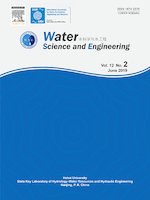
Water Science and Engineering
Unveiling the Science Behind Water Engineering ExcellenceWater Science and Engineering, published by ELSEVIER, is a premier open access journal that has been disseminating vital research in the realms of civil and structural engineering as well as ocean engineering since 2008. With its ISSN 1674-2370 and E-ISSN 2405-8106, this journal plays a crucial role in advancing knowledge and innovation within the sector, evidenced by its impressive rankings in Scopus—holding the 15th position out of 105 in Ocean Engineering and 76th out of 379 in Civil and Structural Engineering, placing it in the 86th and 80th percentiles, respectively. Attaining a Q1 classification in both categories for 2023 highlights its importance and influence in the academic and professional communities. The journal addresses a broad spectrum of topics integral to water sciences, offering significant insights for researchers, professionals, and students alike. With a convergence period spanning from 2010 to 2024, it continues to explore contemporary issues and advancements, providing a pivotal platform for the dissemination of research. The journal is accessible to a global audience, reaffirming its commitment to fostering open access and enhancing accessibility to vital scientific literature.
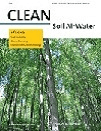
CLEAN-Soil Air Water
Transforming Research into Action for a Healthier PlanetCLEAN-Soil Air Water, an esteemed journal published by Wiley, serves as a vital platform for disseminating research in the fields of environmental chemistry, pollution, and water science and technology. Operating under an Open Access model, it embraces the principles of knowledge sharing, making significant research findings readily accessible to a global audience. With an ISSN of 1863-0650 and an E-ISSN of 1863-0669, the journal has demonstrated its importance in the academic community, reflected in its Scopus rankings within the top quartiles of its categories. Established in 2007 and continuing through to 2024, CLEAN-Soil Air Water offers researchers, professionals, and students an opportunity to explore innovative studies that address pressing environmental challenges, facilitating an exchange of novel ideas and techniques essential for sustainable development. With a publication footprint in Germany and a growing international reputation, this journal is an invaluable resource for those dedicated to advancing the science and practices of environmental stewardship.
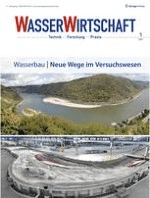
WasserWirtschaft
Advancing water science for a sustainable future.WasserWirtschaft is a renowned academic journal dedicated to the critical field of water science and technology. Published by SPRINGER VIEWEG-SPRINGER FACHMEDIEN WIESBADEN GMBH, this journal has been a vital resource for researchers, professionals, and students since its inception in 1973, covering an extensive range of topics pertinent to water management, engineering, and environmental sustainability. Although it is currently ranked in the Q4 category of the Water Science and Technology category as per the 2023 Scopus metrics, with a ranking of #246 out of 261, the journal is committed to enhancing the discourse surrounding water resource management through high-quality, peer-reviewed articles. The journal does not operate on an Open Access basis, ensuring that its content is curated and accessible to subscribers while promoting rigorous academic standards. With its historical significance and focus on contemporary water-related challenges, WasserWirtschaft remains an essential publication for stakeholders aiming to advance the science and technology of water resources in a rapidly changing world.
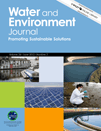
WATER AND ENVIRONMENT JOURNAL
Shaping sustainable practices through rigorous research.WATER AND ENVIRONMENT JOURNAL is a prominent interdisciplinary journal dedicated to the latest research and advancements in the fields of water resources, environmental engineering, and pollution management. Published by WILEY, the journal has established itself as an essential resource for academics, practitioners, and policymakers since its inception in 1987. With an impressive impact factor reflecting its robust influence, it ranks in the Q2 and Q3 quartiles across multiple categories, including Water Science and Technology, Environmental Engineering, and Management, Monitoring, Policy and Law. The journal welcomes high-quality research articles, reviews, and case studies that address the critical challenges facing water and environmental sciences. As an open access publication, it provides a platform for widespread accessibility and engagement, ensuring that the knowledge generated is disseminated to a diverse audience. With a commitment to advancing understanding and solutions in water-related issues, WATER AND ENVIRONMENT JOURNAL plays a crucial role in shaping the future of environmental research and technology.
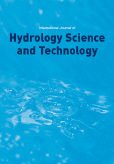
International Journal of Hydrology Science and Technology
Bridging Theory and Practice in Environmental EngineeringThe International Journal of Hydrology Science and Technology, published by InderScience Enterprises Ltd, is a distinguished platform dedicated to advancing knowledge in the field of hydrology, environmental engineering, and water science. With an ISSN of 2042-7808 and an E-ISSN of 2042-7816, this journal, established in 2011 and continuing through 2024, serves as an essential resource for researchers, professionals, and students alike. Despite being categorized in the Q3 quartile across multiple disciplines including Earth and Planetary Sciences, Environmental Engineering, Waste Management and Disposal, and Water Science and Technology, the journal maintains a reputation for contributing significant findings that impact both theory and practical applications in addressing hydrological challenges. Currently unavailable through Open Access options, the journal remains committed to disseminating valuable research that informs sustainable practices in water resource management. The editorial team encourages submissions that explore innovative strategies and methodologies while fostering interdisciplinary discussions, making this journal a pivotal player in shaping the future of hydrological science.
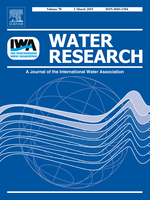
WATER RESEARCH
Driving impactful discoveries in water science since 1967.WATER RESEARCH, published by Pergamon-Elsevier Science Ltd, is a premier international journal dedicated to the advancement of knowledge in the interdisciplinary field of water science and technology. With a significant impact factor, WATER RESEARCH holds a distinguished position, consistently ranking in the top quartile (Q1) across multiple categories including Civil and Structural Engineering, Environmental Engineering, and Pollution. Established in 1967 and set to continue its legacy until at least 2024, this journal provides a vital platform for researchers and professionals to disseminate cutting-edge findings related to water sustainability, quality, and management. Although the journal follows a traditional access model, its commitment to disseminating impactful research ensures that it remains an essential resource for academia and industry alike. With a rigorous selection process, the journal includes articles that significantly contribute to the understanding and resolution of global water-related challenges, making it an invaluable asset for researchers, students, and practitioners engaged in this critical area of study.
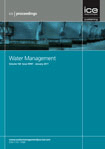
PROCEEDINGS OF THE INSTITUTION OF CIVIL ENGINEERS-WATER MANAGEMENT
Transforming Water Management through Peer-Reviewed InsightsPROCEEDINGS OF THE INSTITUTION OF CIVIL ENGINEERS-WATER MANAGEMENT is a prestigious journal published by Emerald Group Publishing Ltd, dedicated to advancing the field of water management within civil engineering. With an ISSN of 1741-7589 and an E-ISSN of 1751-7729, this journal delivers peer-reviewed research that spans the critical intersections of water science and technology, contributing valuable insights into sustainable water management practices. As evidenced by its ranking in the 2023 Scopus categories, where it holds the Q3 quartile in Water Science and Technology, and a respectable position among its peers, the journal remains a vital resource for researchers, professionals, and students in the field. Though it is not an open-access journal, it offers accessible subscription options that facilitate worldwide dissemination of knowledge, enhancing its role as a fundamental reference point for cutting-edge developments in water management. For those looking to publish or stay updated on the latest research trends, this journal serves as an essential platform for promoting innovation and sustainable practices in civil engineering and water resources management.

Journal of Water Management Modeling
Shaping Policies for Sustainable Water SolutionsThe Journal of Water Management Modeling, published by COMPUTATIONAL HYDRAULICS INT, stands as a pivotal resource in the fields of Civil and Structural Engineering, Geography, Planning and Development, and Water Science and Technology. With an ISSN of 2292-6062, this Canadian-based journal has earned its reputation by exploring innovative modeling approaches to enhance water management, crucial in addressing today's environmental challenges. Despite its current Q3 status in Civil and Structural Engineering and Water Science categories, alongside a respectable Q2 rank in Geography, the journal is committed to advancing knowledge and fostering collaboration among researchers, practitioners, and students passionate about the sustainable management of water resources. The journal operates on an open-access model, ensuring research is readily available to a broad audience, and has converged its editorial focus from 2018 to 2024, continuously adapting to emerging trends and technologies within the discipline. As a part of the global conversation regarding effective water management, it plays a vital role in informing policies and practices that impact communities and ecosystems alike.

Water Practice and Technology
Empowering Water Innovations for a Sustainable FutureWater Practice and Technology is a distinguished open-access journal published by IWA PUBLISHING, dedicated to disseminating cutting-edge research and practical insights within the field of water science and technology. With an E-ISSN of 1751-231X, the journal has been at the forefront of sharing knowledge since its inception in 2011 and has transitioned to open access in 2021, providing unrestricted access to high-quality research articles. Based in the United Kingdom, this journal plays a vital role in advancing the understanding of water resource management, treatment technologies, and environmental sustainability. As of 2023, it is categorized in the Q3 quartile for Water Science and Technology with a Scopus rank of #157/261, placing it in the 40th percentile among its peers. Researchers, professionals, and students alike will find the journal a valuable resource for the latest trends, innovations, and practical applications in the water sector, facilitating a collaborative approach towards addressing global water challenges.

WATER AIR AND SOIL POLLUTION
Pioneering studies in environmental sciences for lasting impact.Water Air and Soil Pollution is a leading peer-reviewed journal published by Springer International Publishing AG, focusing on the vital fields of environmental sciences, ecological modeling, and pollution management. Since its inception in 1971, the journal has contributed significantly to advancing knowledge in the interdisciplinary realms of Water Science and Technology, Environmental Chemistry, and Environmental Engineering. With an impressive history, the journal currently holds a Q2 quartile ranking in several categories, reflecting its high impact and relevance in these essential areas of research. Its rankings—such as #95 in Environmental Science: Water Science and Technology—illustrate its standing in the academic community. Researchers and practitioners alike can access a wealth of studies and reviews that aim to address pressing environmental concerns and foster sustainable practices, although the journal is not Open Access. Located in Switzerland, Water Air and Soil Pollution continues to be a critical resource for those dedicated to understanding and mitigating pollution, making it an indispensable tool for anyone engaged in ecological and environmental research.